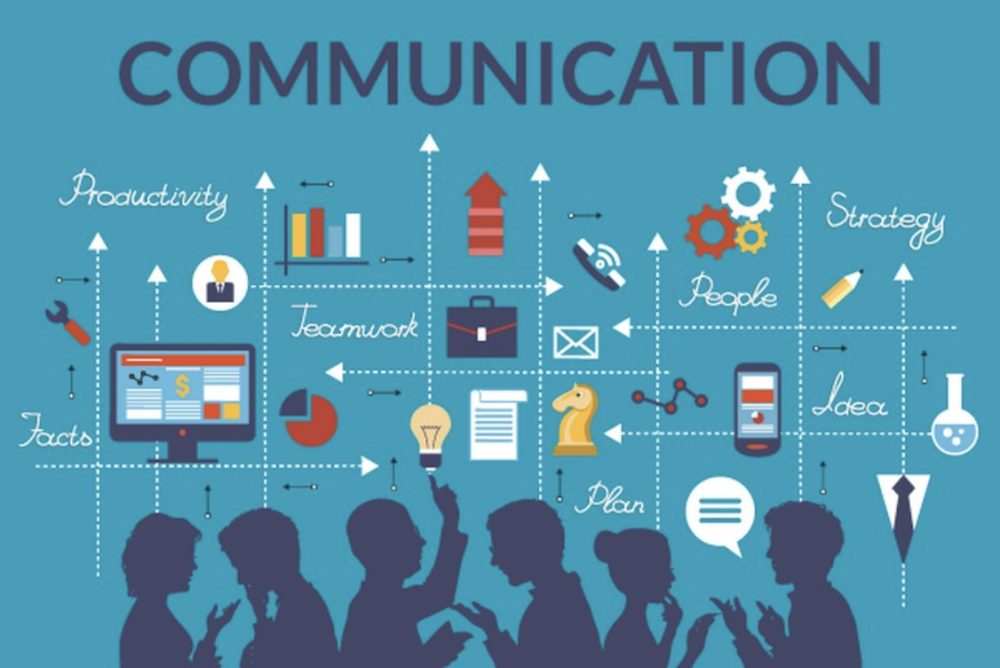What is Business Communication?
Business communication refers to the sharing of information within and outside an organization for the purpose of achieving business goals. It encompasses various forms of communication, including verbal, non-verbal, written, and digital communication. Successful business communication ensures that messages are conveyed clearly and effectively, fostering collaboration, understanding, and alignment among all parties involved.
Types of Business Communication
-
Verbal Communication
This involves face-to-face conversations, meetings, and phone calls. Verbal communication allows for immediate feedback and clarification, making it a vital aspect of business interactions. -
Non-Verbal Communication
Non-verbal cues such as body language, facial expressions, and tone of voice convey messages without words. This type of communication plays a significant role in expressing emotions and establishing rapport. -
Written Communication
Written communication includes emails, reports, memos, and letters. It provides a permanent record and is crucial for formal, professional communication. Proper writing skills ensure clarity, professionalism, and accuracy in business correspondence. -
Digital Communication
In today’s digital age, communication via platforms such as Slack, Zoom, and social media is essential. Instant messaging, video calls, and online meetings are increasingly becoming central to business operations, especially with the rise of remote work.
The Importance of Effective Business Communication
Effective inova-vox.com/ is critical for the following reasons:
-
Enhances Collaboration and Teamwork Communication is the foundation of teamwork. Whether in brainstorming sessions or daily work meetings, effective communication ensures that everyone is on the same page, enabling teams to work efficiently toward shared goals.
-
Builds Strong Relationships Open, clear, and transparent communication fosters trust among colleagues, clients, and partners. When individuals feel heard and understood, relationships are strengthened, leading to better collaboration and long-term success.
-
Boosts Productivity When messages are conveyed effectively, tasks are completed more efficiently. Poor communication can lead to misunderstandings, errors, and delays, all of which negatively impact productivity. Effective communication streamlines operations, reduces mistakes, and enhances workflow.
-
Improves Decision Making Clear communication ensures that the right information is available to decision-makers, allowing them to make informed and timely decisions. Business leaders rely on accurate data, feedback, and perspectives, all of which depend on effective communication channels.
-
Strengthens Company Culture Communication plays a crucial role in shaping a company’s culture. Regular, transparent communication from management can create a positive workplace environment, where employees feel valued and motivated.
Strategies for Effective Business Communication
To improve communication in your business, consider implementing the following strategies:
1. Active Listening
Active listening involves fully focusing on the speaker, understanding their message, responding thoughtfully, and remembering key points. Practicing active listening helps in building trust and resolving conflicts, as it ensures that everyone’s opinions are considered and acknowledged.
2. Clarity and Conciseness
In business communication, time is valuable, and clarity is key. Keep messages simple and to the point. Avoid jargon and unnecessary details that may confuse the recipient. Use clear language and organize information logically to make it easy to follow.
3. Choose the Right Medium
Different communication methods are suited for different situations. For instance, urgent matters may be best communicated via phone or instant messaging, while complex ideas or long-term plans may require emails or formal reports. Choosing the right communication channel ensures that your message is delivered effectively.
4. Non-Verbal Communication Awareness
Be mindful of non-verbal signals, especially during in-person meetings or video calls. Body language, facial expressions, and eye contact can convey emotions, confidence, and understanding. Being aware of these cues can help avoid misunderstandings and make your communication more impactful.
5. Use Feedback Constructively
Feedback is an essential component of communication in the workplace. Offering constructive feedback allows employees to grow and improve. Additionally, seeking feedback from others fosters an environment of continuous improvement. Always ensure that feedback is delivered in a respectful and positive manner to avoid creating unnecessary tension.
6. Empathy in Communication
Empathy allows you to understand the feelings and perspectives of others, making communication more relatable and human. Demonstrating empathy can strengthen relationships and diffuse tense situations. Consider the emotional tone of your communication to create a more supportive environment.
7. Transparency and Honesty
Being transparent and honest in communication helps to build trust within the organization. Whether delivering good news or difficult messages, being upfront and sincere ensures that expectations are aligned and potential issues are addressed promptly.
Common Communication Challenges in Business
Despite its importance, effective business communication can face several challenges:
-
Cultural Differences In global business environments, cultural differences can affect communication styles and expectations. Misunderstandings may arise due to varying communication norms, values, or language barriers.
-
Technological Barriers With an increasing reliance on digital communication tools, technical issues like poor internet connections, unclear video calls, or email miscommunication can hinder effective communication.
-
Lack of Active Listening In fast-paced business environments, people may be distracted or impatient, leading to poor listening habits. Lack of attention can result in missed information, leading to mistakes or misunderstandings.
-
Overload of Information In the age of information overload, people may struggle to process large volumes of communication. Important messages can get lost in a sea of emails or notifications, making it crucial to filter out unnecessary noise and prioritize key messages.
-
Conflict and Tension Miscommunication or differing opinions can lead to conflict in the workplace. It’s important to address conflicts early and communicate effectively to resolve issues and prevent escalation.
Conclusion
Effective business communication is vital for the success of any organization. It enables collaboration, boosts productivity, improves decision-making, and fosters positive relationships both within and outside the company. By focusing on active listening, clarity, feedback, empathy, and choosing the right medium for each message, businesses can communicate more effectively, overcome challenges, and achieve long-term success.
If you want to enhance your business communication skills, consider implementing these strategies in your day-to-day operations. With the right approach, communication can become a powerful tool for growth and success in any business.




